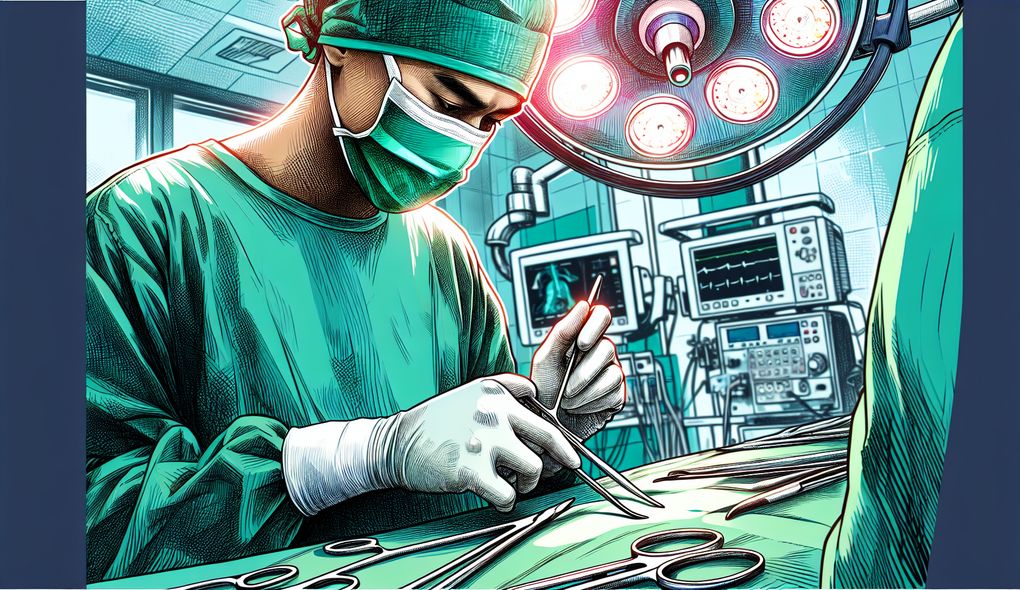What steps would you take to ensure that the surgical instruments are properly sterilized before and after procedures?
JUNIOR LEVEL

Sample answer to the question:
To ensure that surgical instruments are properly sterilized before and after procedures, I would follow a strict set of protocols. First, I would carefully inspect the instruments to make sure they are free of any debris or residue. Then, I would use an appropriate sterilization method, such as autoclaving or chemical sterilization, to kill any microorganisms. After sterilization, I would handle the instruments with clean gloves and store them in a sterile container. Finally, I would document the sterilization process in the patient's medical records. My attention to detail, ability to follow protocols accurately, and commitment to patient safety would guide me throughout this process.
Here is a more solid answer:
To ensure proper sterilization of surgical instruments, I would start by carefully inspecting each instrument for any visible debris or residue. I would use a combination of visual inspection and magnification devices to ensure thorough checking. Next, I would follow the proper sterilization method based on the type of instrument, such as autoclaving or chemical sterilization. During the sterilization process, I would monitor and record the time, temperature, and other relevant parameters to ensure effectiveness. After sterilization, I would handle the instruments with clean gloves and transfer them to a sterile container to maintain their sterility. I would ensure proper labeling and documentation of each instrument for traceability. Throughout the process, I would strictly adhere to safety standards and protocols to prioritize patient safety. My strong attention to detail, ability to follow instructions accurately, and commitment to delivering high-quality patient care would guide me in maintaining the highest standards of sterilization.
Why is this a more solid answer?
The solid answer expands on the steps for instrument sterilization and includes more specific details and depth of explanation. It also highlights the candidate's skills in attention to detail, following instructions accurately, and commitment to patient safety.
An example of a exceptional answer:
To ensure meticulous sterilization of surgical instruments, I would implement a comprehensive approach that encompasses multiple steps. Firstly, I would meticulously clean the instruments to remove any visible debris by using appropriate cleaning agents and techniques. Then, I would perform a thorough inspection using magnification devices to identify any residual traces. Once cleaned and inspected, I would place the instruments in suitable sterilization containers, ensuring proper separation to allow optimal steam penetration. For sterilization, I would follow the specific manufacturer's instructions or guidelines to ensure maximum effectiveness. During the sterilization process, I would closely monitor the temperature, pressure, and exposure time to maintain consistency and validate the sterilization cycle's efficiency. After sterilization, I would handle the instruments with sterile gloves to prevent contamination and transfer them to a designated clean area. To ensure traceability, I would label each instrument with unique identifiers and document the sterilization process in the patient's medical records. Additionally, I would actively participate in continuing education programs to stay updated on new sterilization techniques and equipment. My unwavering commitment to patient safety, meticulous approach to detail, and continuous improvement mindset would enable me to ensure the highest standard of sterilization for surgical instruments.
Why is this an exceptional answer?
The exceptional answer provides a comprehensive and detailed explanation of the steps involved in instrument sterilization. It goes above and beyond in highlighting the candidate's knowledge of proper cleaning techniques, meticulous inspection practices, adherence to manufacturer guidelines, and commitment to continuous improvement. It demonstrates the candidate's expertise in ensuring the highest standard of sterilization for surgical instruments.
How to prepare for this question:
- Familiarize yourself with different sterilization methods, such as autoclaving, chemical sterilization, and ethylene oxide sterilization. Understand the specific requirements and considerations for each method.
- Study the principles of aseptic technique and infection control to ensure proper handling and storage of sterilized instruments.
- Research the best practices for cleaning and inspecting surgical instruments, including the use of magnification devices and specialized cleaning agents.
- Stay updated on the latest advancements in sterilization techniques and equipment by attending seminars, workshops, or online courses.
- Prioritize patient safety and the delivery of high-quality care in your approach to sterilization. Think about ways to communicate these values during the interview.
What are interviewers evaluating with this question?
- Attention to detail
- Ability to follow instructions and protocols accurately
- Commitment to patient safety and quality of care

